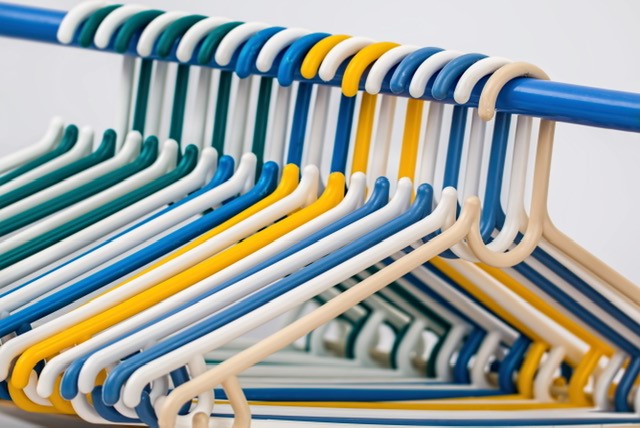A problem that has bedeviled scientists for decades is how to make plastic fully recyclable. Plastic is a remarkable material because its molecules remain together for a long time. That allows for products made of plastic, such as hangers, to maintain structural integrity during use. That benefit has an unfortunate side effect however: products made from plastic do not break down after they have been discarded.
Advances made by researchers at the University of California, Berkeley, have led to an amazing breakthrough – plastic that breaks down after it’s been thrown away.
The Strength of Plastic
The strength of plastic lies in its impermeability. Polymer fibers in the material are aligned so closely together that water cannot penetrate them. That means microbes that might feed on such polymers and speed up the decomposition of products made from them, cannot penetrate them either. So plastic hangers, once discarded, wind up in a landfill and remain there for a long time.
The Magic of Enzymes
There are enzymes that will feed on plastic and help to break it down, but it has been very hard to figure out how to keep those enzymes protected so that they themselves do not untangle and become useless. Until now.
Ting Xu, a professor of materials science at Berkeley, has hit upon a way to keep those enzymes protected until they encounter the perfect circumstances. Those circumstances are the introduction of water and heat.
When water and heat are introduced, the protective layer surrounding the enzyme dissolves allowing the enzyme to begin to eat away at the plastic. The result is a near 80% consumption of the plastic by the enzyme within 1 week.
Change Plastic for Good
Organizations like Change Plastic for Good are spearheading the spread of biodegradable plastic with the adoption of the new technology developed by Xi and her team. CPFG has created a new material called BDP® which is made up of the enzymes and the protective layers surrounding it.
This material is added to plastic during the manufacturing process. Once the plastic has been discarded into soil for example, the enzymes are unleashed and consume the plastic, leaving behind only compost. The compost then fertilizes the soil, and the renewable/sustainable process is complete.
A Pioneer in Renewable Plastic Products Adoption
B&G International has been a leader in renewable product adoption in the plastics industry for decades. Its commitment to sustainable production of hangers, tags, and other packaging is unrivaled. Let their team of experts show you how you can brand and market your business effectively, and with a commitment to preserving our planet’s natural resources. Call 973-824-9220 or email [email protected] today to get started.

